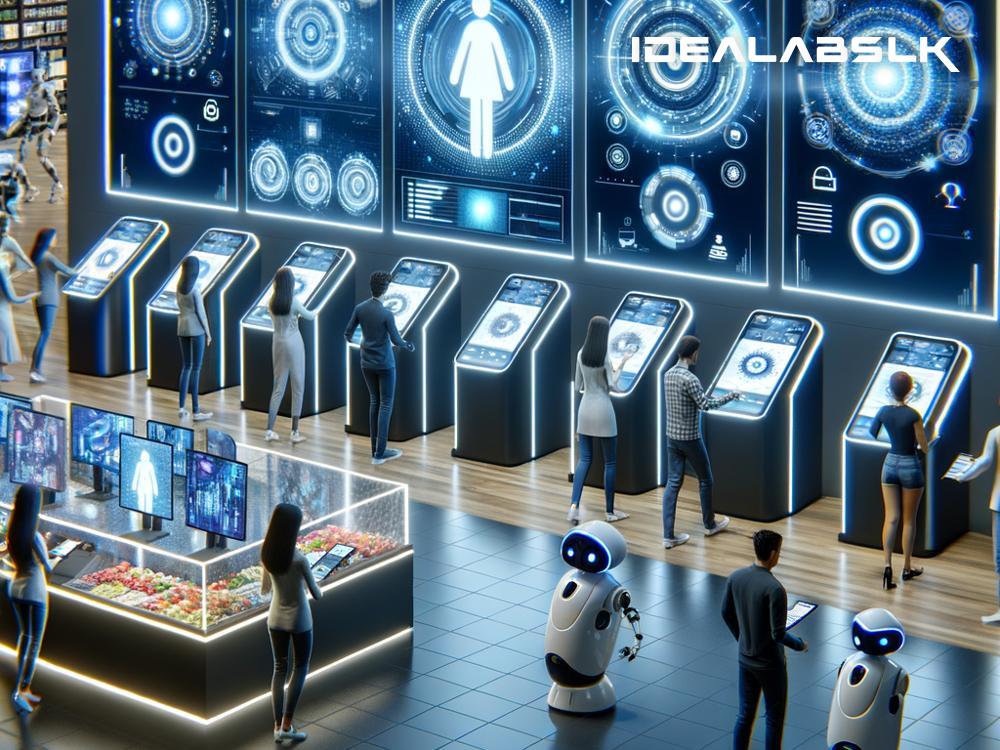What to Expect from Machine Learning in Retail
In today's fast-paced world, shopping has transformed in ways we couldn't have imagined a couple of decades ago. From buying your favorite book online to having groceries delivered to your doorstep, the retail landscape is rapidly changing. One of the most exciting changes comes from the realm of machine learning, a form of artificial intelligence that allows software to improve automatically through experience. So, what can we expect from machine learning in retail? Let’s dive in and explore.
Personalized Shopping Experience
Imagine walking into a store or browsing an online shop where everything you see is precisely what you like or need, almost as if the store knows you personally. This isn't a vision of the distant future; it's happening now thanks to machine learning. By analyzing your past shopping habits, machine learning algorithms can predict what products you might be interested in. This means that the more you shop, the better these recommendations become, making your shopping experience smoother and more personalized.
Efficient Inventory Management
Behind the scenes, machine learning is working wonders in managing inventory, one of the biggest challenges in retail. It can predict the demand for products with remarkable accuracy by analyzing various factors like seasonality, trends, and past sales data. This helps retailers stock just the right amount of product – not too much to cause overstock and not too little to miss out on sales. For consumers, this means fewer instances of out-of-stock items and more timely and diverse product offerings.
Dynamic Pricing
Have you ever noticed how the prices of airline tickets change frequently? This dynamic pricing is finding its way into retail, powered by machine learning. Retailers can adjust the prices of their products in real-time based on several factors, such as demand, inventory levels, and competitor pricing. This approach not only helps retailers maximize their profits but also offers opportunities for customers to snag better deals.
Faster and Smarter Customer Service
Customer service is getting a facelift with chatbots and virtual assistants, making it quicker and easier to get help. These AI-driven helpers can understand and process customer inquiries in real-time, offering solutions without human intervention. Whether it’s tracking your order, handling returns, or answering questions about a product, these virtual assistants make customer service more accessible and efficient.
Augmented Reality Shopping
While not solely based on machine learning, augmented reality (AR) often teams up with it to create immersive shopping experiences. Imagine pointing your smartphone camera at your living room and seeing how a new sofa would look in that space before you buy it. Or trying on clothes virtually to see how they fit without ever stepping into a store. Machine learning algorithms enhance these experiences by learning from your interactions and improving the accuracy and realism of the AR environment.
Secure Transactions
Machine learning is also a powerful tool in fighting fraud. By analyzing patterns in transaction data, it can detect unusual behavior that may indicate fraudulent activity. For instance, if a credit card that's usually used in one city suddenly makes several high-value transactions in another country, machine learning algorithms can flag this as suspicious. This extra layer of security helps protect both retailers and customers against potential fraud.
Sustainable Practices
Sustainability is a growing concern in retail, and machine learning is stepping up to the plate. By optimizing supply chains and reducing waste through better demand predictions and inventory management, machine learning contributes to more sustainable retail practices. This not only helps the planet but also resonates with consumers who prefer to shop from eco-conscious brands.
What's Next?
As we look to the future, the possibilities of machine learning in retail seem almost limitless. From hyper-personalized shopping experiences to more sustainable practices, machine learning is set to revolutionize how we shop. However, with these advancements come challenges, such as privacy concerns and the need for transparency about how data is used. Retailers and tech companies will need to navigate these challenges carefully to fully harness the benefits of machine learning in a way that respects consumer rights and preferences.
In conclusion, machine learning in retail is making shopping more personalized, efficient, and engaging. As technology continues to evolve, we can only imagine the innovative ways in which machine learning will further transform the retail experience. For consumers, this means more convenience, better deals, and a shopping experience tailored just for them. For retailers, it opens up new avenues for growth, efficiency, and connection with their customers. The future of retail is here, and it’s powered by machine learning.

